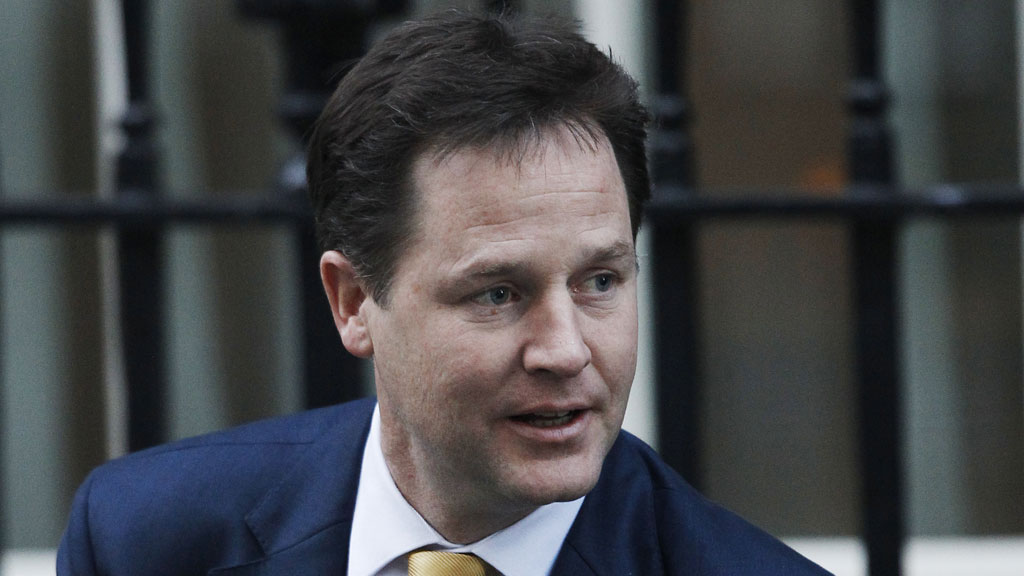Staying green: Clegg hits back at Cameron’s tax cuts plan
As the row over energy bills heats up, Nick Clegg warns David Cameron that stripping green levies could cost jobs and reduce support for poor households.

Prime Minister David Cameron on Wednesday announced a review of competition within the energy market and signalled that he wanted to “get to grips” with green charges which were driving up energy bills.
He did not accept that green levies were the main reason for price hikes, putting 60 per cent of the increase down to rising wholesale costs in the energy market.
It wasn’t something that I was fully expecting and it’s not something that I fully agree with Nick Clegg
But Liberal Democrat leader Nick Clegg, who was given little notice of the prime minister’s surprise announcement, said: “It wasn’t something that I was fully expecting and it’s not something that I fully agree with.”
Mr Clegg, who also rejected Labour leader Ed Miliband’s call for a price freeze as a “con” which would “see prices go up, jobs go down, investment go down”, attacked the “new theory emerging on the right of British politics which says it’s all the fault of us caring about the environment”.
He told the BBC that he would hold talks with the prime minister to find a way forward, which would involve testing the various charges and could see some – such as the warm homes discount worth £135 to two million poor households – moved to general government spending paid for through taxes.
‘Own goal’
But he added: “I’m not frankly entirely sure what rolling back green levies, if removing all green levies which help two million people on very low incomes, which help support thousands of jobs in our green renewable energy sector, if that is what is meant I think that would be an own goal.”
Setting out the next stages Mr Clegg said the government would see if its objectives could be “delivered in a more cost-effective way”.
Read more: Cameron announces green energy tax review
He said: “We will stress test all these different levies. If we can deliver those objectives of keeping the lights on, insulating people’s homes, helping the fuel poor, supporting our green economy for less – of course I don’t want to see an extra penny on people’s bills than is actually necessary – that is what we will do, as we always do in the coalition whatever our differences, we resolve them.”
Mr Clegg is reported to have only been told about Mr Cameron’s decision to announce the plan at Prime Minister’s Questions around 30 minutes before the Commons showdown with Mr Miliband, which was dominated by exchanges on energy policy.
The deputy prime minister refused to go into detail of how he heard about the move through his office, saying: “I don’t think that’s the key thing here. The key thing is what do we do to strike this really difficult balance between getting bills down where we can and keeping the lights on, investing in green jobs and helping the fuel poor.”
‘Losing control’
Mr Miliband will seek to capitalise on the row at the top of government by accusing Mr Cameron of “losing control” over energy policy. The Labour leader will claim that the prime minister is letting the “big six” energy suppliers off the hook by not forcing them to freeze bills while the energy market is reset.
Addressing an audience of small businesses in central London he will say: “Yesterday was the day David Cameron lost control of his government. In weakness and panic, he made up a policy on energy which means business as usual for the energy companies and which is already falling apart.
FackCheck: pouring cold water on Labour's fuel price freeze
“There is no solution to the cost of living crisis which tiptoes around taking on the energy companies and reforming a broken market. But this prime minister is too weak to stand up for the consumer and he always takes the side of the ‘big six’ companies.
“There are 27m families and 2.4m businesses which would benefit from Labour’s price freeze. Sir John Major recognises that the job of government is to reform markets when they are failing and to protect people. This prime minister does not. It will take a Labour government to make the right decisions on behalf of the British people.”